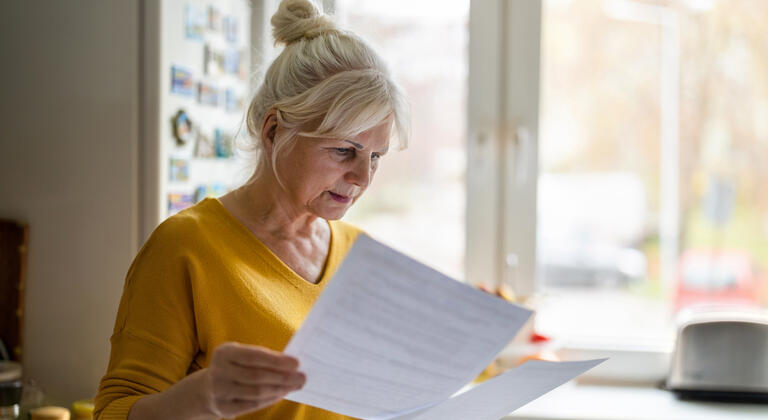Cost of living support
Saving vs investing - and how to make the most of your money
What's the difference between saving and investing and which option is right for you? We explain what you need to know and give some tips on how you can make the most of your money.

id
You might wonder if it’s best to save or invest your money. There are pros and cons to both options and important differences between the two.
We look at what you need to know about saving and investing, to help you decide which is right for you and your goals.
Saving - the pros and cons
When you save your money you’re most likely putting it in a bank or building society account or a cash individual savings account (ISA). You get interest on the money you save and in most cases you won’t pay tax on it. Your money is also generally secure, and you’ll usually be able to access it instantly.
The biggest drawback with saving is that your money could actually lose value over time as it may struggle to beat the impact of inflation, particularly as inflation rates are currently the highest they’ve been in three decades.
If the price of goods and services is rising, and the value of your savings doesn’t rise with it, you’ll effectively have less money than you started with in real terms. That’s why saving is typically best for shorter-term goals (anything you’ll want to use your money for within the next five years).
Investing - the pros and cons
When you invest your money, you put it directly into investments such as stocks and shares or bonds, or indirectly into these through funds, with the aim of growing its value. You can do this tax efficiently through pension plans and stocks & shares ISAs, although there are other products you can use too.
The main benefit of investing is that there's more potential for your money to grow in value over time than if you were to save it, although there's also risk of it falling in value too and you could get back less than was paid in. Because of this, investing is generally a better option for longer-term goals as it gives your money the chance to ride out any market fluctuations and could benefit from compound growth.
Getting the balance right
When it comes to saving and investing, it doesn’t have to be one or the other – it could be a combination of saving and investing depending on how soon you’ll need to access your money and what you’ll need it for.
If you’re thinking long term and are working towards financial goals further in the future, such as retirement, then investing is likely to be the right option. But if you want to access your money in less than five years, saving might be a better option for you.
It’s also important to remember that investing always involves taking some risk with your money. So you need to be comfortable with the risk of potentially losing some money when you invest.
How to make the most of any extra cash for your future
If you have some extra cash that you won’t need in the short term, you could think about using some of it to top up any regular pension payments. It doesn’t need to be a permanent decision. You can always decrease the amount you contribute again in the future, or just make a one-off payment with the money you’ve saved if that works better for you.
With inflation rates so high and, importantly, higher than current interest rates, there aren’t a lot of good options out there for savers right now. So investing in your future could be the best way to make the most of that extra cash and potentially give you a bigger pension pot in the future.
If you have a workplace pension, your payments are generally taken from your salary before it’s taxed. So not only will you save on income tax, you’ll benefit from tax benefits on the extra payment too.
If you want to see what impact topping up your pension payments could have on the future value of your pension pot, use our handy pension calculator. You might be surprised at the difference it could make. You’ll need to include the value of your current pension plan, as well as any other pension plans you may have.
The information here is based on our understanding in May 2022 and shouldn’t be regarded as financial advice.
Laws and tax rules may change in the future and your own personal circumstances, including where you live in the UK, will have an impact on tax.
The value of investments can go down as well as up and you may get back less than was paid in.
Related Articles
-
Four tips that could help you deal with debt
Read about four things you could try doing if you’re worried about debt. Morgan Laing
Morgan LaingMarch 19, 2024
Read more3 mins read -
Why now might be a good time to talk about money
We’re looking at why people feel uncomfortable talking about money and why now might be a good time to open up about your money worries. Morgan Laing
Morgan LaingNovember 06, 2023
Read more3 mins read -
What is Pension Credit – and how do I get it?
Find out what Pension Credit is, how to claim it and how much you might get. Kirsty Kerr
Kirsty KerrJune 12, 2023
Read more3 mins read


